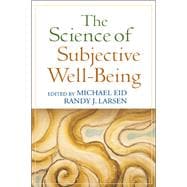This authoritative volume reviews the breadth of current scientific knowledge on subjective well-being (SWB): its definition, causes and consequences, measurement, and practical applications that may help people become happier. Leading experts explore the connections between SWB and a range of intrapersonal and interpersonal phenomena, including personality, health, relationship satisfaction, wealth, cognitive processes, emotion regulation, religion, family life, school and work experiences, and culture. Interventions and practices that enhance SWB are examined, with attention to both their benefits and limitations. The concluding chapter from Ed Diener dispels common myths in the field and presents a thoughtful agenda for future research.








